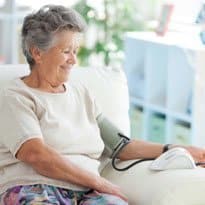NHS Bristol Clinical Commissioning Group has extended its telehealth programme by one year, with plans to develop a “step-down” phase to support patients once they leave the scheme.
The CCG is coming to the end of its three-year telehealth contract with Safe Patient Systems, which began in September 2011, and has decided to extend the contract following an evaluation.
Sian Jones, Bristol CCG’s head of service improvement, told EHI it decided to trial telehealth in response to concerns about the growing number of elderly people with long-term health conditions.
“We want to set the foundations to manage the increasing number of people with long-term conditions who are coming over the hill.”
As part of the telehealth programme, more than 1100 Bristol patients with chronic obstructive pulmonary disease or chronic heart failure have been enrolled in a six- or nine-month period of home monitoring.
The patients are provided with a phone that has pre-installed software allowing them to record their symptoms, as well as other measurements like their weight, blood pressure and pulse.
The data is then transferred to a central server managed by Safe Patient Systems, with each patient allocated a named nurse who has web-based access to the data.
Jones said the telehealth patients have responded well to the programme, with few problems in using the technology and confidence that they are still being looked after properly.
“They felt reassured that although someone might be seeing them less often, they know they’re having an eye kept on them.”
The support from nurses combined with the self-monitoring has also encouraged the patients to be more active in their own care, she said.
“If their symptoms changed and their nurses pick up on it, they give them a call and say your breathing’s got worse, make sure you take the steroids that you have, they become more confident in taking their medication without the nurse’s support.”
Jones said nurses have been able to manage their caseloads more effectively as a result, focusing their attention on difficult areas while giving a “lighter touch” to telehealth patients who do not require as much assistance.
A random sample of the patients showed that community nurse visits had been reduced by 18% and calls to nurses reduced by 40%, while GP practice visits were reduced by 57% and phone calls to GPs by 83%. This is compared to the same group of patients, one month before joining the telehealth scheme, versus one month after.
Jones said the economic viability of telehealth is still a “stumbling point”, with work needed to identify the tangible cost-saving benefits of telehealth.
She said the one-year contract extension, starting in October, will allow the CCG to work with the University of Bristol on collecting and analysing more data from the programme to evaluate its success.
The CCG is also working with Safe Patient Systems to develop a “step-down” plan for patients who come off the telehealth programme, using text message prompts to support their care.
Jones said the prompts will be trialled with a control group before being rolled out further.
If the CCG decides to continue the telehealth programme after the extension, Jones said it will need to go out for procurement again.

